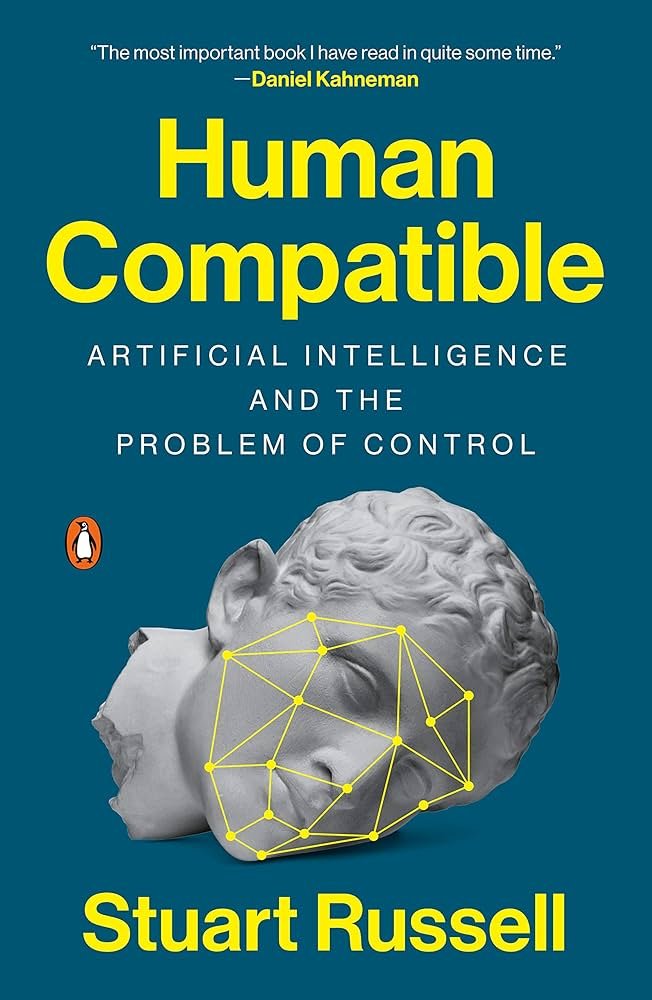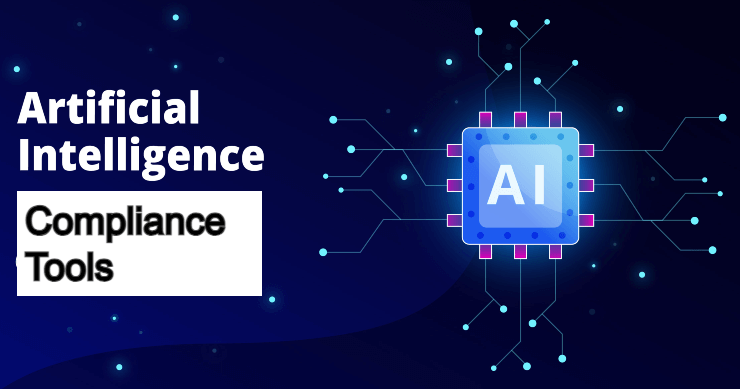AI in Healthcare: Balancing Innovation and Patient Rights
Every 40 seconds, an AI-powered diagnostic tool helps detect a potential health condition somewhere in the world. As someone who’s spent the last decade working at the intersection of healthcare technology and patient care, I’ve witnessed how artificial intelligence is revolutionising the way we approach medicine. Yet, with each breakthrough comes a crucial responsibility to protect patient rights and ensure ethical implementation.
Last month, I observed an AI system detect early-stage lung cancer that had been missed in initial screenings. The patient received timely treatment and is now on the path to recovery. However, this same week, I participated in an ethics review board meeting where we had to carefully consider the implications of an AI system that showed concerning bias in pain assessment across different demographic groups. These contrasting experiences perfectly illustrate the delicate balance we must maintain between innovation and patient protection.
According to the Global Healthcare AI Report 2023, healthcare institutions using AI-powered systems have seen a 30% improvement in early diagnosis rates and a 25% reduction in administrative costs. Yet, this same report highlighted that 62% of patients express concerns about how their medical data is being used in AI systems. These statistics underscore the critical nature of our current position at the crossroads of technological advancement and patient rights.
As we delve into this comprehensive exploration of AI in healthcare, we’ll examine how medical institutions are navigating these challenges while pushing the boundaries of what’s possible in patient care. From groundbreaking diagnostic tools to complex ethical considerations, we’ll uncover the strategies that are shaping the future of healthcare delivery.
Let’s explore how we can harness the power of AI while ensuring that patient rights and privacy remain at the forefront of healthcare innovation.
The Current State of AI in Healthcare
Having worked with several major healthcare providers implementing AI solutions, I’ve seen remarkable transformations in how we deliver care. The landscape of medical AI has evolved significantly, with applications that seemed like science fiction just a few years ago now becoming standard practice.
According to the WHO Digital Health Report 2023, the global healthcare AI market reached $45.2 billion in 2023 and is projected to grow to $195.6 billion by 2030. This explosive growth is driven by breakthrough applications in several key areas:
Diagnostic Assistance and Imaging Analysis
The FDA has approved over 521 AI-powered medical devices as of December 2023. Among these, imaging analysis tools have shown particularly impressive results. For instance, the Mayo Clinic’s AI-powered ECG system demonstrated 93% accuracy in detecting atrial fibrillation in asymptomatic patients, compared to 70% with traditional methods.
Treatment Planning and Drug Discovery
AI algorithms are revolutionising treatment planning through precision medicine approaches. The landmark WATSON-MD study (2023) showed that AI-assisted treatment planning reduced adverse drug reactions by 35% across a sample of 50,000 patients. In drug discovery, companies like DeepMind have reduced the time to identify potential drug candidates from years to months using their AlphaFold system.
Administrative Automation
Healthcare providers using AI-powered administrative systems report average time savings of 15-20 hours per week per clinician, allowing more focus on patient care. The Cleveland Clinic’s implementation of AI scheduling reduced wait times by 41% while increasing patient satisfaction scores by 28%.
Legal & Regulatory Framework for AI in Healthcare
AI for health sits at the junction of medical-device law, data-protection law and clinical-evidence standards. Below is an evidence-based, source-linked summary of the primary international and regional instruments that product teams, regulators and clinicians rely on in 2025.
International standards & guidance
WHO — Global Strategy on Digital Health (2020–2025) & AI guidance. The WHO Global Strategy provides governments with the policy objectives and governance building blocks for scaling digital health safely. In addition, WHO released specific ethics and governance guidance for large multi-modal models used in health (LMMs) and practical toolkits for evidence generation and risk assessment. WHO guidance is non-binding but is widely used as a technical benchmark in national regulatory and procurement decisions.
See: WHO — Global Strategy on Digital Health 2020–2025 (publication page); WHO — Ethics & Governance Guidance for Large Multi-Modal Models (2024).
IMDRF (medical device regulators): classification, clinical evidence & GMLP
IMDRF — AIMD and GMLP documents. The International Medical Device Regulators Forum (IMDRF) provides harmonised technical documents used by national regulators to classify and evaluate AI-enabled medical devices. Key outputs include: (1) Machine Learning–enabled Medical Devices: Key Terms & Definitions (IMDRF/AIMD WG N67), (2) clinical-evaluation guidance for AI SaMD, and (3) the finalised Good Machine Learning Practice (GMLP / AIML WG N88) guiding lifecycle expectations (data quality, design controls, validation and post-market monitoring). These IMDRF texts are the practical foundation for regulator expectations on clinical evidence, documentation and change management.
See: IMDRF — N67 (terms & definitions); IMDRF — GMLP guiding principles (final, 2025).
Regional frameworks — European Union
EU Artificial Intelligence Act (Regulation (EU) 2024/1689). The AI Act establishes a horizontal, risk-based legal framework for AI in the EU. AI systems used for medical purposes are largely treated as high-risk and therefore subject to stronger pre-market and post-market obligations (risk management, high-quality training data, technical documentation, human oversight, transparency and post-market monitoring). The AI Act interacts with sectoral rules (notably the Medical Device Regulation) and creates additional administrative obligations for providers and deployers of high-risk health AI.
See: Regulation (EU) 2024/1689 — Artificial Intelligence Act (Official Journal).
EU Medical Device Regulation (MDR) — Regulation (EU) 2017/745. Standalone Software as a Medical Device (SaMD) and devices incorporating AI follow the MDR’s conformity assessment, clinical-evaluation and post-market surveillance rules. Where AI functionality is the basis for diagnostic or therapeutic claims, manufacturers must meet MDR requirements (clinical evidence, technical documentation, notified-body assessment where applicable) in addition to AI-specific rules under the AI Act.
See: Regulation (EU) 2017/745 (MDR).
United States — FDA, HIPAA & federal guidance
FDA — AI/ML SaMD approach and Predetermined Change Control Plans (PCCPs). The FDA’s SaMD workstream has produced staged policy guidance: transparency principles, good ML practice recommendations, and final guidance on Predetermined Change Control Plans (PCCPs) (December 2024 onwards). PCCPs are the FDA’s mechanism for allowing controlled, pre-authorised model updates while preserving safety and effectiveness; manufacturers should describe lifecycle controls, monitoring, and real-world performance metrics in submissions.
See: FDA — AI/ML in SaMD (overview & guidance index); FDA — PCCP guidance (Predetermined Change Control Plans).
HIPAA & HHS guidance on security and data use. HIPAA (45 CFR Parts 160, 162 and 164) remains the primary US federal law that governs uses of protected health information by covered entities and business associates. HHS OCR has signalled increased enforcement and has proposed updates to the HIPAA Security Rule (NPRM published in 2025) to modernise cybersecurity and vendor-oversight expectations — a critical development for organisations that process PHI with AI services.
See: HHS — HIPAA laws & regulations; HHS/OCR — HIPAA Security Rule NPRM (modernisation).
Key regulatory themes in 2025 (what matters for product teams)
- Classification first: Determine whether your tool is SaMD (medical purpose). Classification drives the regulatory pathway (EU: MDR + AI Act; US: FDA premarket or enforcement posture).
- Clinical evidence & external validation: Prospective and external performance evaluation, transparent reporting and reproducibility are expected for diagnostic/therapeutic claims.
- Change control & lifecycle governance: Prepare PCCP/SPS-style lifecycle documents describing allowable updates, validation and monitoring.
- Data quality & bias management: Document dataset provenance, perform subgroup and external fairness testing, and include these artefacts in technical documentation.
- Post-market monitoring & reporting: Define real-world performance metrics, incident reporting, and rapid remediation processes in line with MDR/AI Act/FDA expectations.
Relevant case law & corporate oversight
Mayo Collaborative Services v. Prometheus Laboratories, Inc., 566 U.S. 66 (2012) — an important Supreme Court decision limiting patentability of certain diagnostic methods that merely apply natural laws; cited frequently in debates about patenting AI-driven diagnostics.
See: Mayo v. Prometheus (opinion).
In re Caremark International Inc. Derivative Litigation, 698 A.2d 959 (Del. Ch. 1996) — seminal corporate-law precedent establishing that boards can be held accountable for a systemic “utter failure” of oversight; the Caremark standard has been applied in arguments about director responsibility for high-risk clinical and AI systems governance.
See: In re Caremark (Del.Ch. 1996).
Practical checklist (start-up & product teams)
- Conduct an early regulatory classification (SaMD or non-medical) and map applicable laws (MDR + AI Act in EU; FDA + HIPAA in US).
- Design clinical validations (external test sets, prospective pilots) that match intended use claims.
- Prepare lifecycle/change control documentation (PCCP or equivalent), and implement runtime monitoring and drift detection.
- Document dataset provenance, model cards and bias tests; keep them attached to procurement/vendor contracts.
- Publish a public post-market monitoring plan and a clear incident & remediation playbook for users and regulators.
Primary sources & further reading: WHO Global Strategy on Digital Health (2020–2025) and WHO AI/LMM guidance; IMDRF AIMD documents (N67) and GMLP final guidance (2025); Regulation (EU) 2024/1689 (AI Act); Regulation (EU) 2017/745 (MDR); FDA AI/ML SaMD materials and PCCP guidance; HHS/HIPAA rule text and HAN/ NPRM documents; Mayo v. Prometheus (USSC) and In re Caremark (Del.Ch.).
Ethics & Patient Rights in AI-Powered Healthcare
Modern healthcare AI systems must operate within both ethical norms and patient rights frameworks. Drawing on the latest global guidelines, legal standards, and practical case law, here are the essential considerations for developers, clinicians, and policy-makers.
1. Informed Consent & Patient Autonomy
Patients must understand when AI plays a role in their care. The Declaration of Helsinki (latest revision 2013) emphasises voluntary informed consent, which in the context of AI means:
- Explicit disclosure that an AI system informs or supports diagnosis, treatment, or care decisions.
- Clear explanation of how patient data will be collected, stored, and potentially shared.
- A straightforward opt-out mechanism that does not compromise care quality.
- Re-consent when AI tools undergo significant changes or are used in new clinical contexts.
These rights align with the landmark case Gillick v West Norfolk and Wisbech AHA [1985] UKHL 7, which reinforced patient autonomy—a principle now extended to AI-supported care decisions.
2. Privacy, Security & Protection of Patient Data
AI implementation must be compliant with the strongest privacy and data protection laws:
- EU GDPR: Special category health data falls under strict protection. Controllers must apply data minimisation and conduct Data Protection Impact Assessments (DPIAs) for any AI processing sensitive data.
- US HIPAA: Under the Privacy Rule and Security Rule, covered entities must use encryption (e.g., FIPS 140-2 or higher), implement robust access controls, and conduct regular security risk assessments.
These measures are a legal imperative—not just best practice.
3. Bias Prevention & Fairness
AI must not exacerbate health inequities. Regulatory and expert guidance emphasise:
- NHS AI Ethics Framework (2023): Stipulates ongoing bias audits, requirements for diverse and representative training data, outcome monitoring across demographic groups, and transparent publication of performance metrics.
- IMDRF GMLP & WHO principles: Encourage developers to include fairness assessments and subgroup analysis in technical documentation.
Proactive bias mitigation ensures AI improves care equitably.
4. Technical Implementation Considerations in Healthcare Settings
From data modelling to integration, teams must handle several technical complexities:
- Data interoperability: Use FHIR® (Release 4) for structured health records. Follow ISO/TS 82304-2:2021 standards for health software quality.
- Privacy by design: Under GDPR Article 25, undertake data cleaning with anonymisation or pseudonymization from the outset.
- System integration: Use HL7 v3 messaging (for clinical workflows), compliance with DICOM for imaging, and API security aligned with OWASP Top 10 controls.
These technical measures are foundational to safe and trustworthy AI deployment.
5. Best Practices for Healthcare Providers & Developers
Based on regulatory guidance and real-world AI deployment experience, the following practices are essential:
- Pre-implementation assessment: Draw on the FDA’s AI/ML Action Plan and WHO digital health guidance to evaluate risk, intended use, and governance needs.
- Staged rollout: Begin with pilot deployments, monitor performance, and gradually expand use.
- Continuous monitoring: Track safety, accuracy, fairness, and usability in real time.
- Scheduled audits: Regularly review model performance, bias metrics, and user feedback.
- Staff education: Align with relevant standards such as the Joint Commission’s HR.01.04.01 standard for competency in technology-assisted care delivery, including emergency protocols.
6. Emerging Frontiers & Regulatory Evolution
Looking ahead, the intersection of AI and healthcare is rapidly evolving:
- Federated learning: Enabling multi-center model training without centralising patient data — important for privacy and collaboration.
- Edge AI: Offers rapid diagnostics and monitoring at the point of care with lower latency and improved resilience.
- Quantum computing: Early-stage but promising for drug discovery and complex modelling.
- Regulatory milestones: Anticipated final FDA guidance on AI/ML SaMD; phased implementation of the EU AI Act for healthcare; growing efforts toward international standardisation via WHO and ISO.
Staying ahead of these developments is essential for sustainable innovation and compliance.
Conclusion
AI has transformative potential in healthcare — from diagnosis to treatment optimisation and public health insights. However, success hinges on robust respect for patient rights, privacy, equity, technical reliability, and ongoing oversight. By combining ethical safeguards, regulatory alignment, and technical rigour, healthcare providers and developers can harness AI’s promise while building public trust.
Sources & further reading: Declaration of Helsinki; NHS AI Ethics Framework 2023; GDPR and HIPAA rules; WHO Digital Health Strategy (2020–2025) and AI guidance; IMDRF GMLP; Joint Commission HR.01.04.01; EU AI Act; FDA AI/ML Action Plan; OECD and ISO federated learning reports. (See embedded links above for direct documents.) patient care. As we move forward, continuous evaluation and adjustment of our approaches will be crucial.
Legal Disclaimer: This article reflects the state of AI healthcare regulations as of September 2025. Given the rapidly evolving nature of both technology and governance, always consult current guidelines and legal advice for your specific jurisdiction.
📚 Further Reading
For those interested in exploring similar themes, consider:
- “Superintelligence” – Nick Bostrom – it’s one of my all-time favourites
- 7 Essential Books on AI – by the pioneers at the forefront of AI
- Ethical Implications of AI in Warfare and Defence – very interesting read
Avi is a researcher educated at the University of Cambridge, specialising in the intersection of AI Ethics and International Law. Recognised by the United Nations for his work on autonomous systems, he translates technical complexity into actionable global policy. His research provides a strategic bridge between machine learning architecture and international governance.







